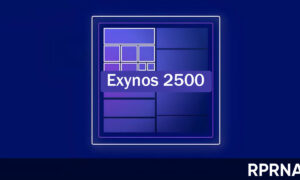Samsung is projected to be the fourth-largest shareholder in Legacy Nodes by 2021. The company is trying to expand its presence in the contract chip manufacturing sector through innovative fabrication processes.
According to market researcher Correndpoint Research report, Samsung Global Foundry, the world’s largest memory chip maker, estimates it will carry 10 percent of its capacity on mature connections, representing a chipmaking technology process of fewer than 40 nanometers.
Taiwan Semiconductor Manufacturer (TSMC) tops the list with 28% efficiency, United Microelectronics Corporation (UMC) with 13%, and China Semiconductor Manufacturing International Corporation (SMIC) came in third with 11 percent.

Despite being the fourth largest capacity, Samsung is the second-largest foundry in the world in terms of revenue. The South Korean tech giant has focused on advanced chip processing nodes. Samsung and TSMC are two chip manufacturers that can massively produce chips of 7-nanometer (Nm) nodes and smaller.
According to market researcher Trendforce, Samsung’s revenue share in the global foundry market is expected to reach 18 percent by 2021, while TSMC revenue is projected to grow 54%. Meanwhile, the global foundry market is projected to grow by 6% to $89.6 billion by 2021.
Join Samsung on Telegram
Industry observers say 2021 will be the beginning of a major capital investment cycle in the foundry industry, as demand for chips for high-performance computing (HPC) and next-generation networks continues to grow.
In recent years, TSMC and Samsung have been trying to add ultraviolet (EUV- Extreme ultraviolet lithography) lithography from ASML, which includes NV. Moreover, EUV improves semiconductor circuit designs and allows manufacturers to produce chips that boast high speed and low power consumption, as well as low-cost units per unit area.

By the end of 2022, Counterpoint Research estimates that TSMC will assemble 90 EUV devices, while Samsung will be between 45 and 50.
Despite the aggressive capital cost, market observers say the supply shortage in the foundry industry is unlikely to be resolved in the near future.
“Looking ahead from the second half of 2021 to 2022, both TSMC and Samsung have made plans to aggressively expand their 5nm capacities in response to their HPC clients’ high demand for components in 2022,” said TrendForce.
|Via|













